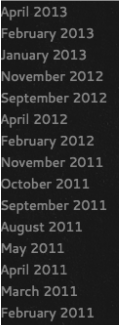We work with over 60 Referral Agencies who refer people to the foodbank for support in their time of need. Our Referral Partners include:
Citizens Advice
Social Services
Refugee Organisations
Homeless Charities
Newcastle City Council
Schools
Religious Centres
GP’s
Housing Associations
The social impact of Coronavirus has resulted in more people using our services and we have responded by opening additional centres across the city to prevent people going hungry. We now distribute food in the following areas:
Benwell
West Road
Byker
Heaton
Lemington
Newbiggin Hall
Over the course of 12 months to 31st March 2021 we issued over 19,000 food parcels (an average of 1600 parcels per month) which fed approximately 53,000 people. In part the reason for this increase is the result of Covid 19 on vulnerable people. Our response to demands across the City is the support we provided to other community groups in Walker, Byker and Heaton.
From April 2020 to March 2021, 53,000 people benefited from the food in those parcels. This is an increase of 62% (up 20,000 – on the previous year @33,000).
This number includes 21,500 children – under the age of 16 which was an increase of 62% on the previous year.
To make these food parcels required 307 tonnes of food in the past 12 months– up by 50% on 2019/2020.
On average public food donations at supermarkets or to our centres make up 46% of the food we issue. NWEFB has to raise funds and donations to make up the shortfall in food.
Lockdown meant it was not possible to generate donations at NUFC match-day collections.
Free School Meals in the holidays and the £20 uplift in Universal Credit have helped low income families cope with the economic impact of the pandemic. Both FSM and the UC uplift are temporary measures which government plan to stop in September 2021. Furlough is also due to be stopped. This could lead to yet another increase in people using the foodbank.
When these measures are withdrawn, many families could fall into deeper financial hardship and poverty.
Research shows that people need to use food banks for many reasons, the main ones being low-income – benefit changes – benefit delays – or can’t meet household bills.
A Foodbank is a last resort for people who are struggling to make ends meet and feed their families.
Newcastle West End Foodbank works closely with its service users to address the challenges of living on little or no money, or without a regular income.
Newcastle City Council Information
- Newcastle has pockets of relative poverty and food poverty is symptomatic of wider poverty, with high levels of unemployment and child poverty, key statistics include: · Newcastle residents live in the 23rd (out of 317) most deprived local authority area in the UK (IoD, 2019)
- In 2020, 31.8% of pupils are entitled to and claiming Free School Meals, compared to the national average of 17.3% (NCC, 2020)
- In Newcastle 20,626 children live in poverty, equivalent to 45% in Central Newcastle, 33% in North Newcastle and 38% in East Newcastle (End Child Poverty, 2019/20)


 RSS Feed
RSS Feed
